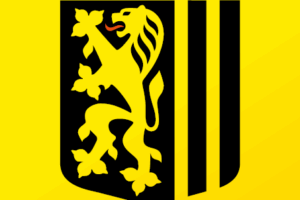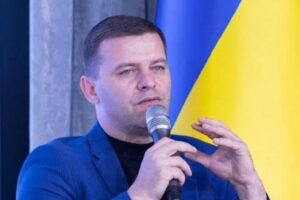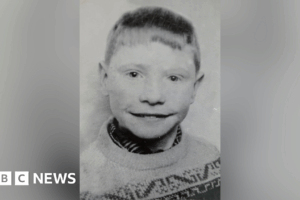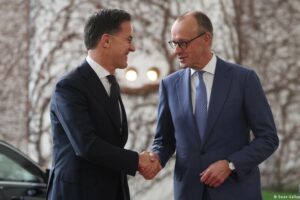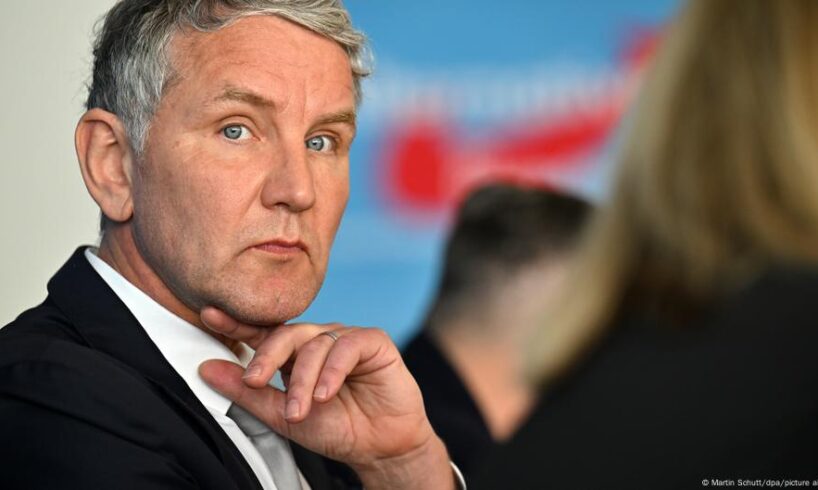
Allegations of espionage against the Alternative for Germany (AfD) have been raised by the interior minister of the state of Thuringia. In an interview with Handelsblatt, Social Democrat (SPD) Georg Maier expressed concern that the AfD is abusing its parliamentary powers to gather information about Germany’s transport infrastructure, water supply, digital infrastructure and energy supply.
“With its requests, one gets the impression that the AfD is working through a list of tasks assigned by the Kremlin,” Maier told the newspaper this week.
He pointed out that the Thuringian branch of the AfD had submitted 47 such inquiries to the state parliament in the past 12 months alone — and with “increasing intensity and depth of detail.”
“The AfD is particularly interested in IT and equipment used by the police, for example in the area of drone detection and defense,” Maier said. Equipment used in civil protection, health care and Bundeswehr activities are also the subject of inquiries.
Thuringian Interior Minister Georg Maier hsa said the AfD is asking official questions on behalf of the Kremlin Image: Bodo Schackow/dpa/picture alliance
In Germany, Kleine Anfragen (literally “small inquiries”) are an official parliamentary instrument to help parties obtain information from both federal and state governments that is not publicly available. They are primarily used by opposition parties that do not have direct access to the ministries and authorities of the government apparatus. The governments must respond to the inquiries in writing.
In Thuringia, the state and parliamentary group leader of the AfD is Björn Höcke, who is classified as a confirmed right-wing extremist by the security authorities. Höcke has been previously convicted of using a banned slogan from the Nazi era.
AfD — Praise for Putin’s Russia
Höcke has also repeatedly praised President Vladimir Putin’s Russia in the past. In a YouTube conversation with AfD politician Maximilian Krah in January 2023 — after the start of Russia’s war of against Ukraine — he stated: “Today, whether the mainstream media wants to hear it or not, Russia does not only have negative connotations — it is also a country that some hope could be a champion for a world of free and sovereign states without hegemonic influence.”
Höcke (right) and AfD co-leader Alice Weidel (center left) are leading figures in the far-right partyImage: Sören Stache/dpa/picture alliance
Höcke has sharply rejected the accusations of the SPD interior minister. In a statement on his Facebook account, he accused Maier of having a problem with the rule of law.
“He has no evidence to back up his claims. He is bothered by the fact that the opposition is doing its constitutional duty: monitoring the work of the government and, if necessary, criticizing it.” Questions to the ministries on various issues also help prepare the AfD for assuming government responsibility, Höcke added.
Höcke said his AfD parliamentary group was considering filing a complaint against the interior minister for defamation, and called on Thuringian State Premier Mario Voigt to dismiss Maier.
The AfD is the strongest political force in Thuringia. However, because of its proven links to the far right, all other parties have refused to form an alliance with it. Since last year, the small state has been governed by a coalition of conservative Christian Democrats (CDU), center-left Social Democrats (SPD) and the left-wing populist Sahra Wagenknecht Alliance.
Bundestag: Fear of betrayal of state secrets
But Maier has also received backing from within the federal parliament, the Bundestag. Marc Henrichmann, the chairman of the Bundestag’s intelligence oversight committee and a CDU member, told the RND news network: “I firmly believe that Putin is using the AfD as a compliant tool and that party leadership — as much as it claims the contrary — does not have the power to prevent this form of betrayal.”
Where do Europe’s far-right parties differ?
To view this video please enable JavaScript, and consider upgrading to a web browser that supports HTML5 video
Henrichmann pointed out that, due to the same concerns, AfD lawmakers had not been elected to the Bundestag’s parliamentary oversight committee. This committee meets exclusively in secret and is responsible for monitoring the work of the federal intelligence services.
The AfD has repeatedly been accused of having close ties to Russia, and numerous AfD members of the Bundestag have maintained close contacts with Putin’s circle in the past. AfD Bundestag member Jan Nolte used to write for the Russian propaganda newspaper Izvestia.
Similarly, Markus Frohnmaier, deputy chairman of the AfD parliamentary group in the Bundestag, was part of the organizing team for the 2018 Yalta International Economic Forum, which was supported by the Russian government and the Russian secret service FSB. In October 2025, Frohnmaier announced his intention to travel to Moscow for political talks. Numerous other party officials have made headlines in the past with statements downplaying Russia’s war against Ukraine.
For all these reasons, Maier also wants any motion to ban the party to include “the issue of treason.”
“The AfD is not only hostile to the constitution due to its nationalist ideology, but also threatens our liberal democracy through its connections to authoritarian systems,” he said.
This article was originally written in German.
While you’re here: Every Tuesday, DW editors round up what is happening in German politics and society. You can sign up here for the weekly email newsletter, Berlin Briefing.
